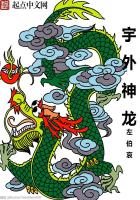"Look what I have got to show you." said Fred, as he came in from school.
"Why, it is a lump of ice," said Norah, "What are you going to do with that, Fred?""I am going to try and teach you something about the ice, as teacher taught us in our lesson this morning. I"m going to be teacher tonight," said Fred.
"But where did you get the ice?" asked his sister. "You couldn"t get it out of the ponds. The weather is not cold enough.""What has the cold to do with it?" asked Fred. "It is the cold that changes the water into ice." "Quite right," said Fred. "This ice is now a solidbody. It is solid water. It was once liquid, like all other water. Ice and water are the same substance in different forms. I asked Mr. Mabbs, the fish dealer, to give me this piece of ice on my way home. "Can you tell me any other substances you haveseen in both the solid and liquid form?"
"Oh yes," she replied. "I"ve seen butter and dripping, wax and sugar, sulphur and lead in both forms.""How can we change a piece of butter into the liquid form?""We must heat it."
"How do we describe the change that takes place in the butter?""We say the butter melts."
"Teacher melted several substances during the lesson by heating them," Fred added. "But while he was melting them he gave a boy the piece of ice to hold in his hand. When he asked the boy for the ice he found it was all gone.""Of course," said Norah, "the heat of the hand melted the ice.""Quite true, but would the other substances have melted in the same way?""Butter would have melted in the hand, but the wax, sugar, sulphur, and lead would not have melted.""Why not?" asked Fred again.
"These substances require more heat than ice requires before they melt," said Norah.
"Now, I want you to think about some of the things you have seen melted," said Fred.
"What happens to them all if we stand them aside in the liquid form for a time?""They all become solid again," replied Norah. "We proved that by melting the wax and the lead in the spoon. When they were taken away from the heat they became solid once more.""Notice how easily the piece of ice melts in front of the fire. I will catch the water as it drops from it in this saucer. Now if we stand this water aside, will it turn into ice again?""It will not turn into ice again here," said Norah. "It is not cold enough. But if we could put it into a very cold place it would become solid ice again. We should say that the water had frozen."SUMMARY
Ice is solid water. Heat will change this solid, like others, into liquid. Very little heat is wanted. Ice melts in the warm hand. The liquid water would become solid again in a cold place.
Lesson 18













